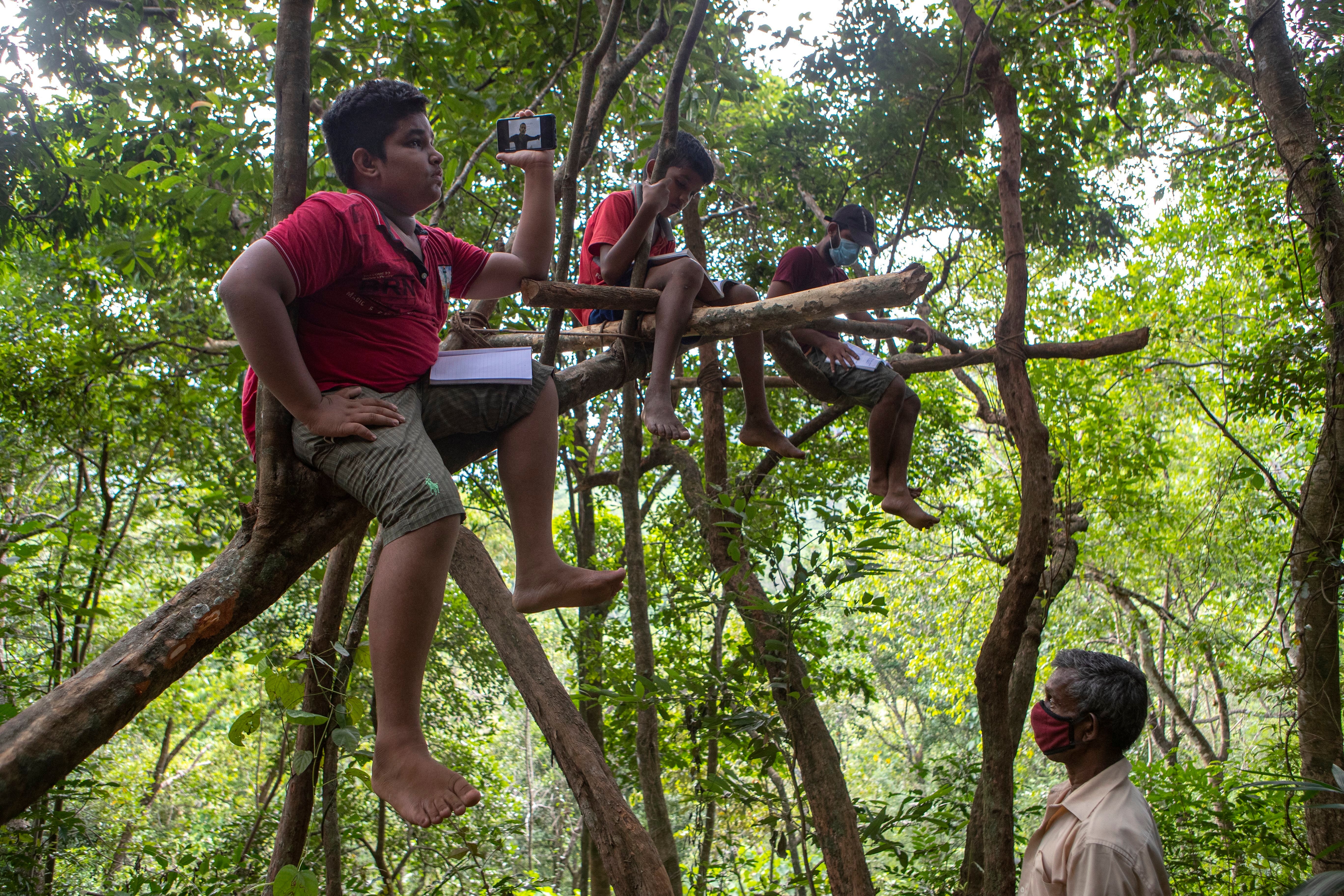AP PHOTOS: In Sri Lanka, a dangerous climb for online school

Your support helps us to tell the story
From reproductive rights to climate change to Big Tech, The Independent is on the ground when the story is developing. Whether it's investigating the financials of Elon Musk's pro-Trump PAC or producing our latest documentary, 'The A Word', which shines a light on the American women fighting for reproductive rights, we know how important it is to parse out the facts from the messaging.
At such a critical moment in US history, we need reporters on the ground. Your donation allows us to keep sending journalists to speak to both sides of the story.
The Independent is trusted by Americans across the entire political spectrum. And unlike many other quality news outlets, we choose not to lock Americans out of our reporting and analysis with paywalls. We believe quality journalism should be available to everyone, paid for by those who can afford it.
Your support makes all the difference.Getting online school lessons for this remote Sri Lankan village requires a trek of more than 3 kilometers (2 miles) in dense bushes sometimes visited by leopards and elephants.
The teachers and some 45 schoolchildren in Bohitiwaya then climb a rock to access the only internet signal available.
Information technology teacher Nimali Anuruddhika uses the signal to upload lessons for her students who haven't been able to go to school because of the COVID-19 pandemic. The students who also live in the village make the same journey to download online lessons sent to them by their teachers.
Not all have mobiles or laptops, with four or five children sharing one device.
Their parents, most of whom are farmers, often accompany their children. H.M. Pathmini Kumari, who accompanies his sixth-grade son, says the children climb the rock twice a day and their safety is a big concern for parents.
The village in the central-eastern part of the island country lacks basic amenities, and its children had been studying in a government school, now closed, that is some 16 kilometers (10 miles) away.
In the village of Lunugala, some 60 kilometers (37 miles) away, adults escort schoolchildren to a mountaintop treehouse in a forest reserve. It's about 30 feet high and has internet access. They take turns to upload their homework and download lesson plans.
Schools in Sri Lanka have been closed for the most part since March 2020.
Authorities say they make every effort to provide all children access to education, but Joseph Stalin who heads the Ceylon Teachers’ Union, says at most 40% of Sri Lanka's 4.3 million students can participate in online classes. The majority lack access to devices or connectivity.
Sri Lanka’s government on Monday began a campaign to vaccinate all teachers with a view to reopen schools soon.